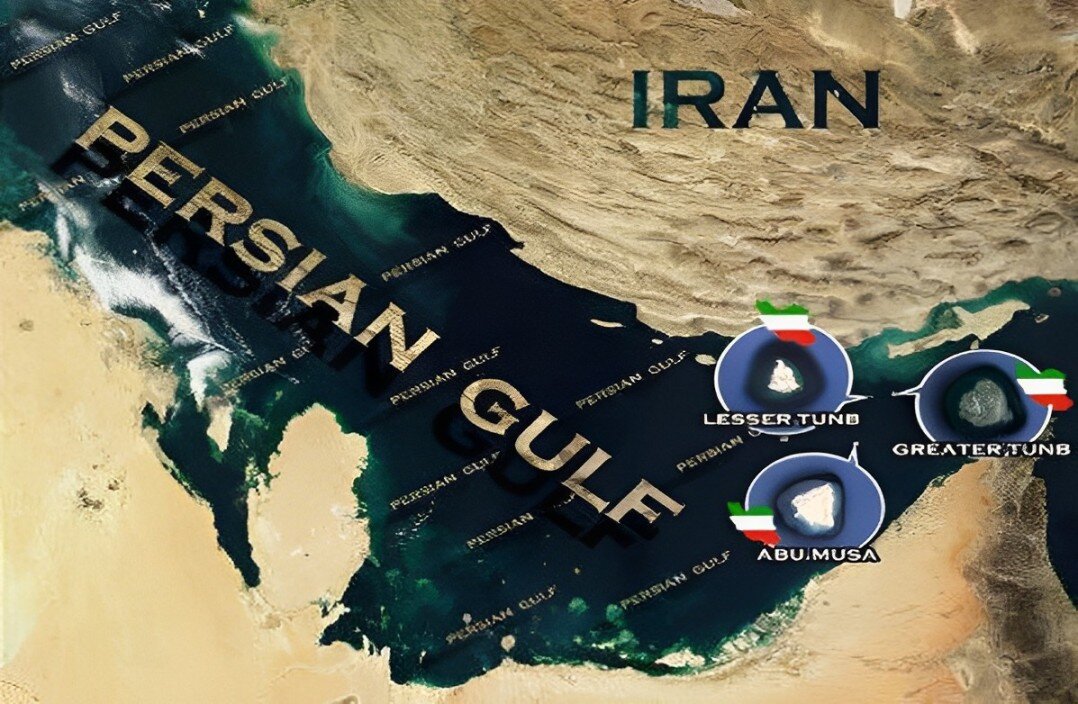Iranian cultural figures unite in defense of national sovereignty over Persian Gulf islands

TEHRAN- A collective of esteemed Iranian scholars, intellectuals, and artists has issued a statement underscoring that the Persian Gulf islands of Abu Musa, Greater Tunb, and Lesser Tunb are inseparable parts of Iran's territory and will remain so.
"Iran, the unified and historical land of all Iranians, finds itself facing a new concern amidst a multitude of challenges and perils. The European Union, by supporting the unfounded claims of the UAE government, labeled our historical and legal sovereignty over the eternally Iranian islands in the Persian Gulf as 'occupation.' This action poses a threat to Iran's territorial integrity and national sovereignty, contradicting fundamental principles of law and international relations,” the statement, published on Sunday, notes.
“The implications of legal documents, historical precedents, and clear geographical, cultural, and political characteristics provide substantial evidence that outweighs any doubts regarding Iran's rightful sovereignty over the islands of Greater Tunb, Lesser Tunb, and Abu Musa,” it continues.
The statement emphasizes, “Iranian governments have not only exercised their indisputable right to national sovereignty over these islands for more than half a century since the last international and regional agreements, but historically and since ancient times, these three islands have been and will remain integral parts of Iran’s territory.”
“Our present and future are inextricably linked to the preservation of this land, inseparable from our past. As children of Iran, we call upon all beloved Iranians, both at home and abroad, to raise their voices in a resounding defense of Iran's integrity and territorial integrity across all realms of thought, culture, history, art, society, politics, civility, law, and communication.”
“Iran is a land of differences, diversities, and pluralities; but now, more than ever, we must unite as guardians of Iran and remain vigilant!” it concludes.
Among the 81 distinguished signatories of this statement are literary figure Esmaeil Azar, linguist Mohammad Ali Azarshab, composer Majid Entezami, filmmaker Habib Ahmadzadeh, director Marzieh Boroumand, screenwriter Farhad Tohidi, architect Gholamreza Eslami, miniaturist Zinat al-Sadat Imani and poet Sa’ed Baqeri.
Other prominent names include history scholar Daryoush Rahmanian, journalist Mohammad Qouchani, actor Reza Kianian, director Kamal Tabrizi, philosophy scholar Najaf Qoli Habibi, cinematographer Alireza Zarrindast, vocalist Hesameddin Seraj, sociologist Hossein Serajzadeh and law scholar Mohammad Hossein Saket among numerous others.
Also included are veteran actor Ali Nasirian, cineast Alireza Shoja-Nouri, journalist Younes Shokrkhah, veteran miniaturist Mahmoud Farshchian, writer Mehrdad Ghaffarzadeh, filmmaker Hassan Fat’hi, musician Farhad Fakhreddini, painter Hossein Mahjoubi and calligraphist Yadollah Kaboli.
On October 17, a joint meeting was held in Brussels featuring the leaders of the Gulf Cooperation Council and the European Union. The final statement from this gathering included unfounded claims regarding Iran's territorial integrity, calling on Iran to end its alleged occupation of the three islands—Greater Tunb, Lesser Tunb, and Abu Musa—that are claimed by the United Arab Emirates. The statement asserted that this occupation violates the sovereignty of the UAE and contravenes the principles outlined in the United Nations Charter.
Legal experts indicate that when British colonial rule ended in the region in 1971, the newly established nations, including the UAE and Bahrain, rightfully transferred ownership of the islands to Iran, as all historical records affirm their Iranian heritage.
Following the EU's support for baseless claims regarding the three Persian Gulf islands, a widespread wave of solidarity for these islands has emerged among artists, social media activists, and various segments of society.
SAB/
Leave a Comment